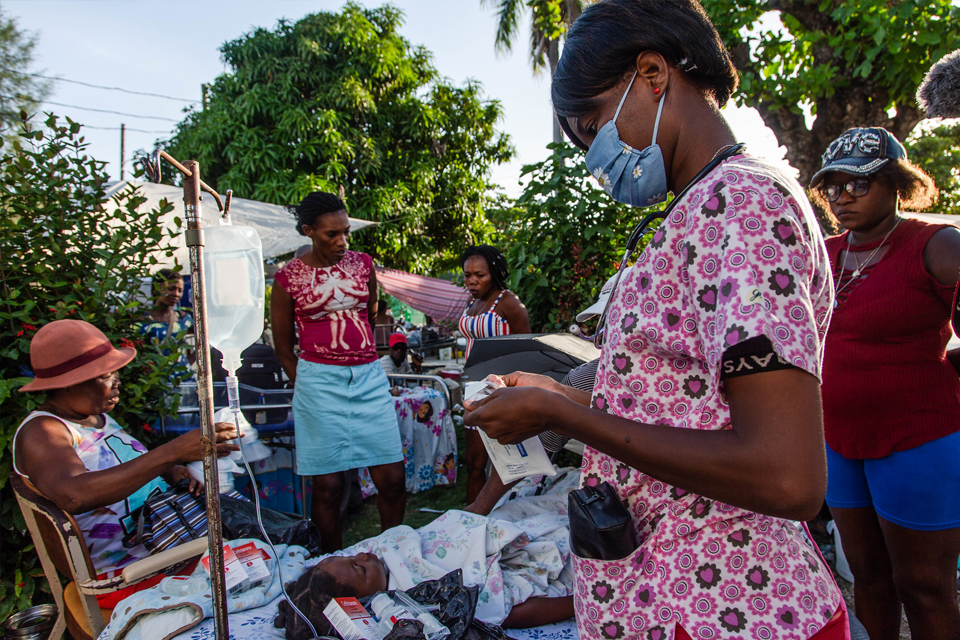UN Women works in Haiti to ensure that the humanitarian response reaches out to women, incorporates their voices and proposals.
As the country remains in a state of national emergency, UN Women, along with its national partners and the entire UN and international cooperation system, joins the efforts in response to the earthquake. Immediate humanitarian support, protection of rights, food security and early recovery are the priorities for women's organizations and Haitian women.Date:

Official data show that the 7.2 earthquake that struck Haiti on August 14 has so far left 828,000 people affected and 650,000 in emergency situations, 2,200 dead, at least 344 missing, more than 12,000 injured and more than 130,000 homes damaged or destroyed.
Additionally, almost 40% of the population in the most affected departments, Sud, Grand'Anse and Nippes, in the southwest of Haiti, have urgent humanitarian needs. Among the first actions taken by UN Women, approximately 5,000 protection and hygiene kits have been distributed in these three departments and its own resources, both financial and human, have been mobilized to strengthen the response on the ground.
Humanitarian crises affect women and girls differently. They can result in increased rates of gender-based or sexual violence, overburdened shelters, limited and unsegregated toilet facilities, unequal access to humanitarian assistance, information and resources, and loss of economic opportunities.
The UN Women team in Haiti has been working since the day of the earthquake, relentlessly, to put their rights and proposals at the center of humanitarian action as part of the response.
"Crises such as this one challenge us to strengthen women's leadership in a context in which they have historically had low levels of participation in public life. In Haiti, for example, less than 3% of the parliament is made up of women. However, experience has shown that women play a leading role in the recovery after a natural disaster," says Maria Noel Vaeza, UN Women Regional Director for the Americas and the Caribbean.
An on-the-ground assessment
In collaboration with other UN agencies, humanitarian actors, women's partner organizations on the ground and CARE International, UN Women is developing a Rapid Gender Analysis that will provide humanitarian actors with specific recommendations on the humanitarian response needed for women and girls as a basis for ensuring that their rights and needs are properly integrated into recovery and reconstruction efforts.
UN Women has been working alongside Haiti's Ministry of Women's Affairs, civil society and women's organizations since the earthquake, providing technical and financial support to women's organizations to ensure that women and girls are equal contributors and beneficiaries of response and early recovery efforts.
UN Women is conducting a Rapid Gender Analysis of the impact of the earthquake on women together with CARE International and the government, OCHA, UNDP, WHO, WFP, UNICEF and UNFPA in order to contribute to the different impact analyses that are contributing to a better humanitarian response on the ground.
Donate now to help women and girls in Haiti
| UN Women's work in Haiti is carried out in partnership with the Government of Haiti, civil society and UN actors. Partnerships with the Government of Haiti include the Ministry of Women's Affairs, the National Disaster Management Agency, the Ministry of Agriculture, the Ministry of Environment and the National Department of Corrections. UN Women works in cooperation with CARE International, OCHA, UNICEF, UNFPA, UNDP, WHO, IOM, WFP and FAO. Partnerships with civil society will include community-based women's networks, national and local gender equality advocates and social organizations. |
